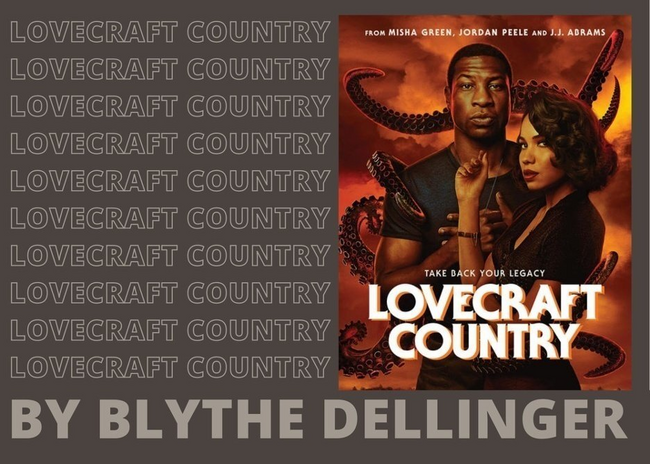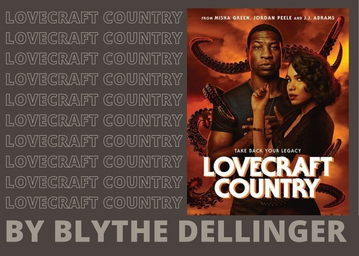Before watching HBO’s new series “Lovecraft Country” I had only heard of H.P. Lovecraft in AP Lit class. I had never done the work of investigating what types of stories he told or what type of person he was (hint he wasn’t a good one).
Lovecraftian horror is a sect of the horror genre that suggests that what exists beneath the guise of reality has more power and pull than we humans who are supposed to be at the top of the food chain do. At its core, the genre is meant to unsettle and provoke feelings of fear for what unknowingly to humans can exist right under our noses. While Lovecraftian horror inspired the works of many authors like Stephen King, that is about all we have to thank H.P. Lovecraft for. Lovecraft was a known bigot, racist, homophobe and antisemite. He is known as one of the most openly racist authors of the 20th century.
That is where Matt Ruff and his novel “Lovecraft Country,” which HBO recently adapted into a series of the same name, come in. Ruff penned a novel fraught with Lovecraftian themes to address the racism of 1950s America, serving a sort of literary middle finger to Lovecraft by using themes he made famous to tell the stories of people he was so set on oppressing and degrading. The show follows Atticus Turner, a Black man who has recently returned from service in the Korean War, and his family as they come to terms with their ancestry amidst the backdrop of Jim Crow and segregation.
The Turner family are descendants of Titus Braithwhite, a slave trader and founder of a society of wizards called the Sons of Adam. The show follows Atticus and his friends and family as they set out to find the Book of Names, a book that would allow them to decipher what magic lies within their lineage. Along the way, they encounter white racists depicted as monsters and various threats to their lives as they know them. The show incorporates historical events such as the Tulsa Race Massacre and the murder of Emmet Till.
Related: A Movie Review of Jojo Rabbit
I thought the show was a very interesting watch as the racism and bigotry of being Black in America is illustrated very poignantly through the use of monsters and spell casting. One would not think that using such abstract concepts to depict the very real and institutional issue of racism in America would be effective, however, this show proves that such depictions are viable. While I enjoyed the show and looked forward to watching it every Sunday, I feel it would be unfair to not address some of the shortcomings that have been brought to light in other reviews.
The show aims to address deep-rooted, generational traumas of the Black experience in America, however, Maya Phillips makes some excellent points in her review The Unintended Racial Horror of ‘Lovecraft Country’ about where the series falls short of this goal.
Phillips makes the point that attempts to challenge racial stereotypes within the series tend to further entrench them by the series conclusion. The series barely scratches the surface of who these characters truly are outside of their Blackness, queerness, or femininity. By not fully investigating the characters’ personhood and humanity outside of the racial injustice of their society, I agree with Phillips that the show does both the characters and viewers a disservice. I encourage you all to read Phillips’ review as she sheds light on some crucial flaws within the series and how it depicts the Black experience.
Overall, “Lovecraft Country” is a solid watch that I recommend.



